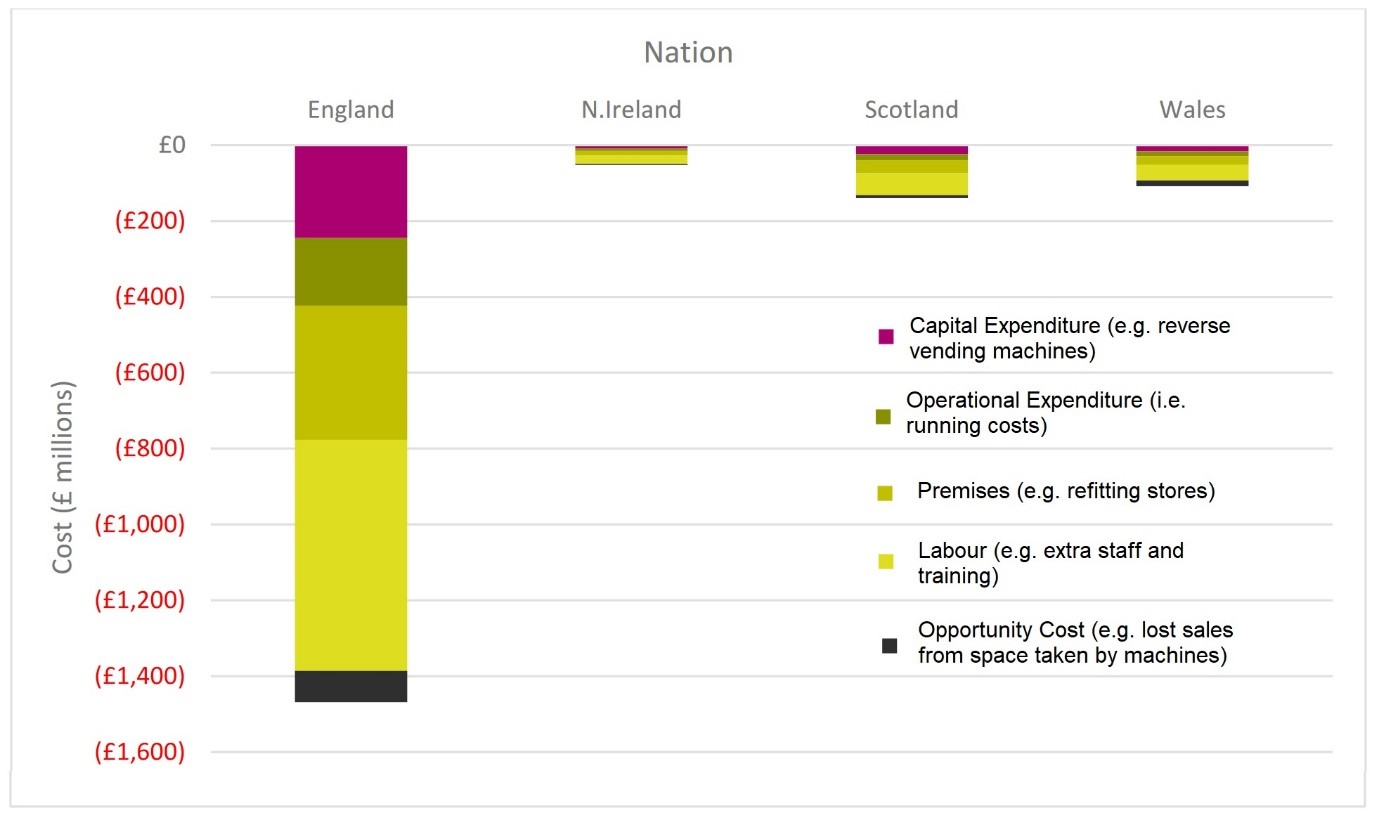21 August 2023
Retailers are calling on the Government to review its plans to introduce a deposit return scheme (DRS – a bottle recycling scheme) for drink containers as new research from the British Retail Consortium shows that the scheme is likely to cost the industry at least £1.8bn a year from 2025, with startup costs, such as buying machines, hitting businesses much earlier.
Worse yet, this figure does not include the hundreds of millions of pounds required from industry to set up a body to run the scheme. The current £1.8bn per year estimate includes; capital costs, including buying and installing Return Vending Machines (RVM); labour costs, including staff training and time for processing returns; and other operating costs, including service and maintenance for RVMs, IT costs and cleaning of containers used for collection.
Annual cost of DRS in each of the four UK nations

Time is needed to rethink current plans to prevent the introduction of an unnecessarily complex and costly scheme. In Scotland, the rushed implementation of a similar DRS scheme collapsed after governments failed to deliver a meaningful plan or realistic timelines for its introduction. This has left industry footing the bill for tens of millions in sunk costs. Without significant revision, the UK scheme risks running into many of the same problems as in Scotland.
Government’s ambitious target of eliminating all avoidable waste by 2050, and all avoidable plastic waste by 2042, is supported by three pillars within its Resource and Waste Strategy: its packaging levy - Extended Producer Responsibility (EPR), the consistent collections of household and business recycling in England , and DRS. Retailers believe that the sequencing of these three reforms is essential. Reforms to household recycling collection and EPR must first be introduced together, and only then will it be clear on the exact role of a DRS in further improving recycling rates.
Government’s recent decision to delay the implementation of EPR has provided an important opportunity to redesign aspects of this policy, which will see industry pay 100% of the costs of collecting and recycling the packaging they produce. It will also soften the inflationary aspect of this policy, which will add an estimated £2bn per year on its own.
Margins remain slim and have significantly tightened in the last year, as confirmed by the recent Competition and Markets Authority report. While retailers may be able to absorb some of the costs of implementing these new policies, it is inevitable that introducing EPR and DRS together would place upward pressure on consumer prices.
Andrew Opie, Director of Food & Sustainability at the British Retail Consortium, said:
“The proposed Deposit Return Scheme is costly, complicated and cannot deliver the step change in recycling needed to justify it. By driving up costs by almost £2 billion per year the government risks pushing up prices for ordinary households, just as inflation is coming down. Government must first introduce its household collection and packaging levy reforms so that it can assess the best way forward on a DRS. On its current course, it will be consumers who will pay the price of this unnecessarily hasty, expensive and complex scheme.”
-ENDS-

